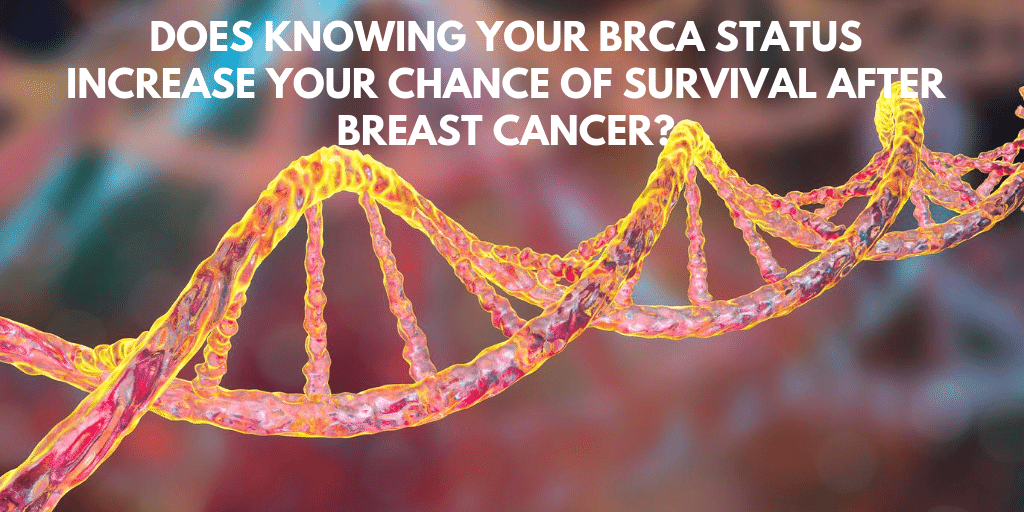Does Knowing Your BRCA Status Increase Your Chances of Survival after a Breast Cancer Diagnosis?
Having a BRCA1 or BRCA2 gene mutation increases your risk of developing breast cancer during your lifetime by up to 80%. There are many reasons why you may choose to have or not have genetic testing. However, new research suggests there is a survival benefit associated with knowing that you carry a BRCA1/2 gene mutation.

A recent JAMA study evaluated the connection between patients’ knowledge of their BRCA gene status, and their overall survival after a breast cancer diagnosis. The study analyzed 105 women with breast cancer between 2005 and 2016. Forty-two women knew they were carriers of a BRCA1 or BRCA2 mutation. Sixty-three women only discovered their BRCA status after they were diagnosed with breast cancer. Both groups of women had a similar age at the time of their breast cancer diagnosis. There were no significant differences in hormone receptor status of the tumors in between groups.
Earlier Stage at Diagnosis and Improved Survival
The study found a significant difference between the two groups of women in terms of the breast cancer stage at the time of diagnosis. In the women who knew they carried a BRCA gene mutation, 80.9% had DCIS or a stage 1 cancer at diagnosis, and only 9.5% had a stage 2 breast cancer or higher at diagnosis. In women who did not know their BRCA status, only 30% had an early stage cancer at diagnosis, whereas 52.4% were diagnosed at stage 2 or higher.
‘Knowledge is Power’
Compared to women who knew their BRCA1 or BRCA2 genetic status prior to their breast cancer diagnosis, women who learned their positive gene status after diagnosis were 12 times more likely to have an advanced stage breast cancer at the time of diagnosis. Likewise, 5 year survival was significantly higher for women who knew their BRCA genetic status prior to their breast cancer diagnosis.
Personal Choice
There are pros and cons to every decision, and deciding whether you should have gene testing is no different. There is no “right” or “wrong” and ultimately the decision is a very personal one. Anyone who is considering gene testing should consult with a gene counsellor first to fully discuss the implications of testing ahead of time. There is no point getting a test if you are not prepared to make a decision based on the results.
This study provides some additional helpful information to consider in your decision-making: women who are aware of their BRCA1/2 status have a greater chance of having an earlier stage breast cancer at the time of their cancer diagnosis and living longer, compared to women who carry a BRCA genetic mutation but are unaware.






